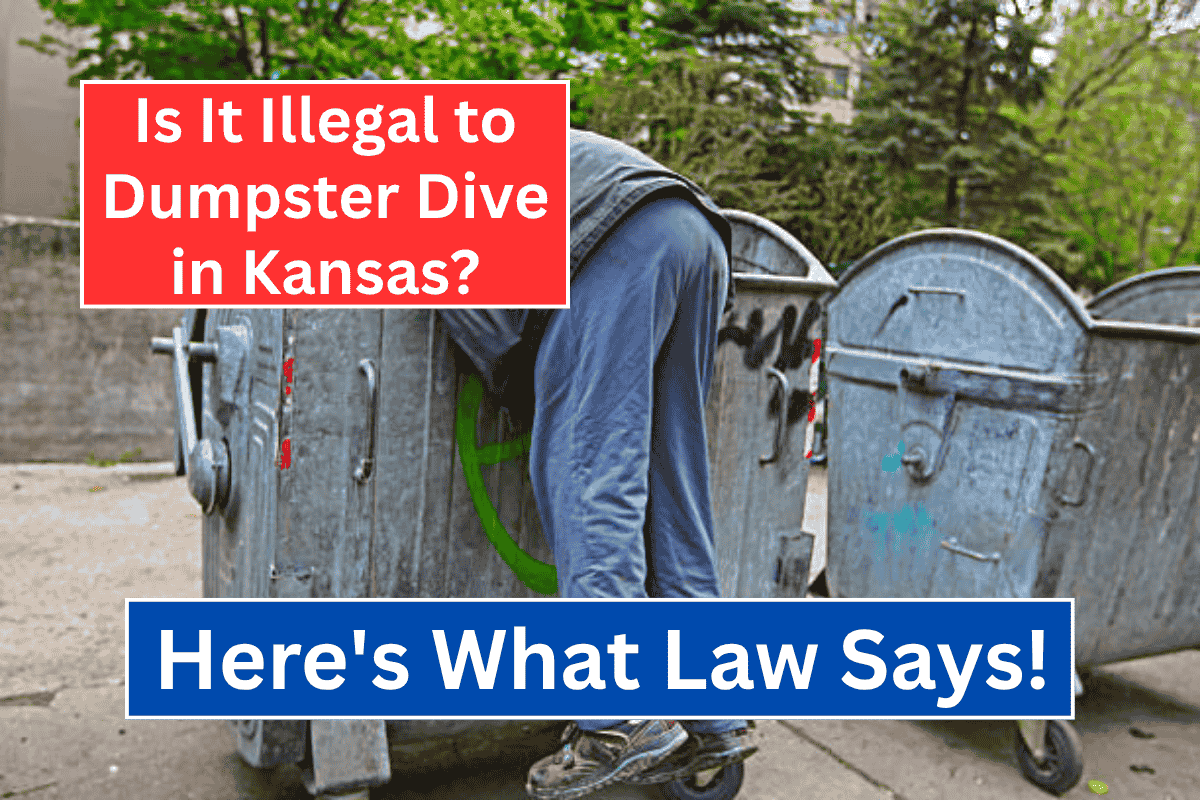Dumpster diving is an activity that mixes sustainability with the thrill of finding hidden treasures among discarded items. In Kansas City, dumpster diving has become a way to reduce waste while hunting for valuable goods. But is it legal?
In this article, we’ll dive into the legalities of dumpster diving in Kansas and what you need to know before you start rummaging through the trash.
Kansas City: A Treasure Hunt in Trash
In Kansas City, the concept of “one person’s trash is another person’s treasure” holds a lot of weight. Many residents enjoy scavenging through dumpsters, hoping to find valuable items that others have discarded.
While it can be an environmentally friendly and fun activity, dumpster diving does come with its own set of legal considerations. Understanding these legal aspects is important before you dive into any trash cans or dumpsters.
The Legal Landscape of Dumpster Diving in Kansas
The good news for dumpster divers is that there are no specific statewide laws in Kansas or Missouri that directly ban dumpster diving. This means that, in general, you are free to explore public dumpsters.
However, it’s essential to understand that while the activity is not explicitly illegal, there are limitations and rules that can make the practice tricky, especially when it comes to private property.
Municipal laws in Kansas City also don’t specifically address dumpster diving, but local ordinances may regulate it in certain ways.
For example, some areas may have restrictions regarding the collection of recyclable materials or scavenging around businesses. Always check local rules to ensure you’re in compliance with city regulations.
Dumpster Diving on Private Property: Beware of Trespassing Laws
The real legal concern for dumpster divers arises when they venture onto private property. If a dumpster is located behind a fence or in an area that is not accessible to the public, it’s considered private property.
Missouri law treats entering private property without permission as trespassing, which is classified as a Class B misdemeanor.
So, if you decide to dumpster dive behind a private building, apartment complex, or in any enclosed area, you may end up facing legal consequences. Always be cautious and make sure the dumpster is on public property or in an area where access is allowed.
Understanding Trespassing Laws
When dumpster diving on private property, homeowners have a reasonable expectation of privacy. For example, if a dumpster is located within a gated area or behind a fence, you are essentially trespassing.
Similarly, apartment complexes may have dumpsters for residents only, and ignoring these signs could result in fines or even arrest.
To avoid trespassing, it’s best to stick to dumpsters in public spaces or areas that do not have clear signs restricting access. Make sure you’re aware of any rules or ordinances in your area to avoid running into legal trouble.
Dumpster Diving in Public Spaces: Legal but Cautious
The good news for dumpster diving enthusiasts is that it is generally legal to search through dumpsters in public spaces, such as parks, downtown areas, or outside businesses—provided you are following local laws and ordinances.
In Kansas City, you can search through trash bags left on the curb or explore dumpsters in areas where the public has access. This supports the growing culture of sustainability and recycling that encourages reusing discarded items instead of sending them to the landfill.
However, it’s important to be mindful of any specific local restrictions, such as ordinances about scavenging for recyclables or rules governing waste collection. Always check local guidelines to ensure you’re staying within legal boundaries.
A Federal Ruling to Note
There is a key legal precedent supporting dumpster diving in public spaces: the 1988 federal case California v. Greenwood. In this case, the U.S. Supreme Court ruled that the Fourth Amendment does not prohibit the warrantless search of garbage that is left for collection outside a home.
This means that if you are dumpster diving in Kansas City and searching through bags left on the curb, you are not violating any laws related to privacy. As long as the garbage is placed outside for collection, it is considered public property at that point.
Dumpster Diving: More Than Just a Hobby
Beyond the thrill of finding hidden treasures, dumpster diving offers environmental benefits. Many people dive into dumpsters not only for fun but also to reduce waste and promote sustainability.
Reusing and recycling discarded items helps minimize the need for new resources, contributing to a greener planet.
In Kansas City, the dumpster diving community plays a key role in advocating for sustainability by showing how everyday items—whether furniture, clothing, or household goods—can be salvaged instead of being thrown away.
Conclusion: Dumpster Diving in Kansas City
In Kansas City, dumpster diving is legal in public spaces, but you must exercise caution when it comes to private property. It’s important to be aware of trespassing laws and avoid diving into dumpsters located on private land, as doing so could result in legal consequences.
Make sure you’re familiar with the local laws, and always respect property boundaries. Dumpster diving is a fun and sustainable activity that promotes reusing materials, but it’s crucial to understand the legal landscape before embarking on your treasure hunt.












